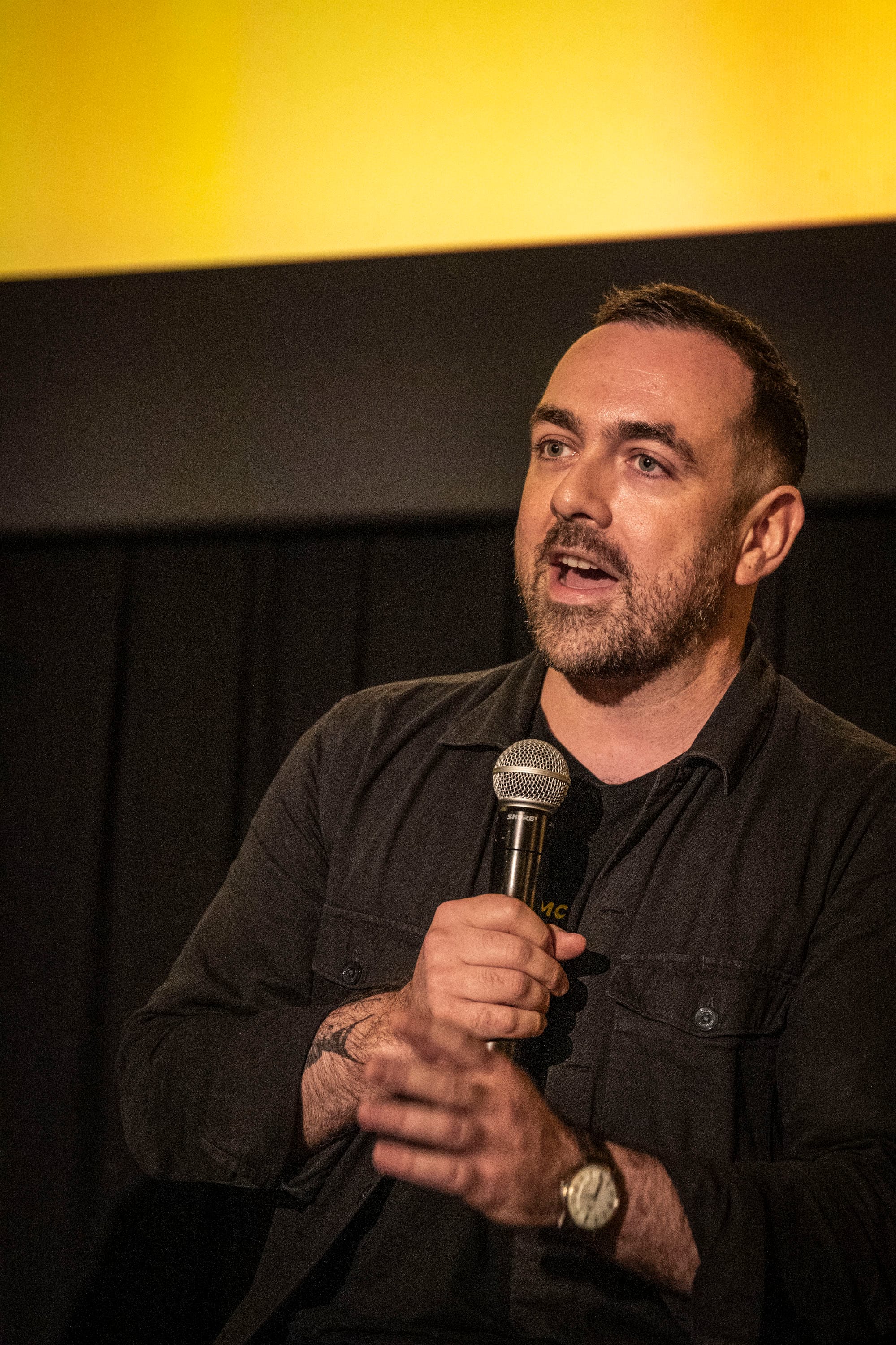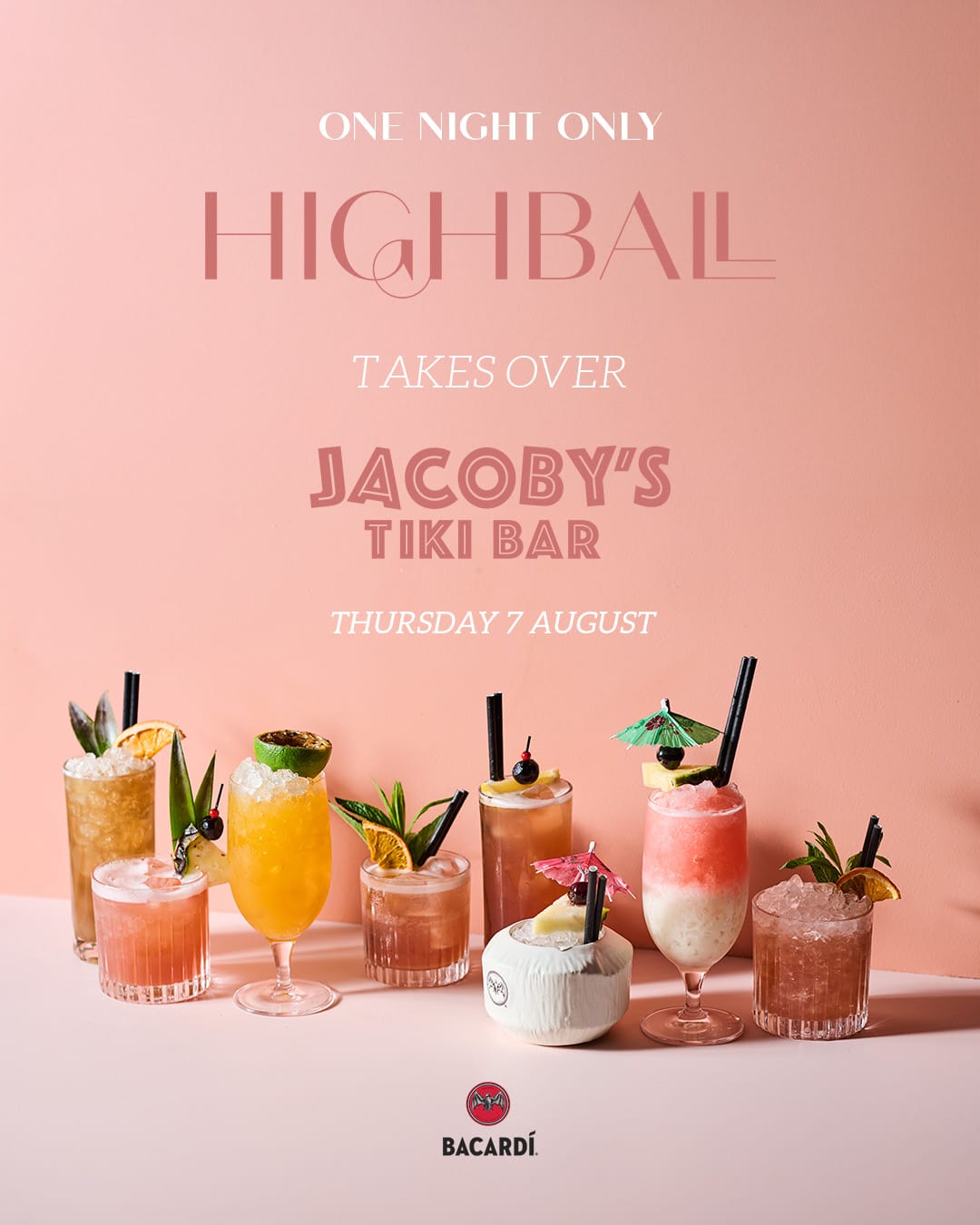The fancy hotel cocktail bar has had a hard time in Australia; they don’t seem to reach the heights that hotel bars do in parts of Asia and in cocktail capitals like London and New York.
This is something we spoke about at the Better Bars Summit in Brisbane during Bartenders’ Weekender last month. I hosted a conversation with Glenfiddich and The Balvenie ambassador, Ross Blainey, and Alex Gilmour (better known to Australian bartenders as Happy from his time at Tio’s and Cantina OK!) from the luxury Singapore hotel Conrad Singapore Orchard, where he is the beverage director for the property, with responsibility for all things drink across the hotel’s restaurants and bars, and notably, it’s award-winning cocktail bar Manhattan.
We’ve got a recording of that talk for this week’s instalment of Drinks At Work, and we talk about what it is that sets a great hotel bar apart from a great indie operated bar; we get into what the luxury element in these environments really means, and the importance of details and a bunch more. It’s a really great chat with some smart thinkers.

The hotel bar wasn’t always this pinnacle of excellence. Save, perhaps, for storied bars like the American Bar at The Savoy Hotel, hotel bars were not the places where interesting drinks and bar culture were happening. That changed around 2010, with bars like The Artesian at The Langham in London (which was where superstar bartenders like Alex Kratena and Simone Caporale rose to prominence — pickling up the title of world’s best bar a number of times) and London’s The Connaught Bar upping the quality and craft and experience of drinks available in those bars (something that Giorgio Bargiani talks about here).
Below, we’ve got a few takeaways from the chat, as well as news on a takeover happening at Jacoby’s Tiki Bar, and what we’ve been reading.
But a quick aside from the road first: can we all agree that one important job for a hotel bar is to be open until its advertised closing time, so that weary — but not yet sleepy — travellers can get that one nightcap to send them off to their room for a good sleep? Without the mild panic induced by seeing the bar, its lights up, the bartender well advanced through their closing procedure? So they can get their hands on that Scotch whisky salve, and feel their eyelids grow heavy?
“There’s more allowance for national pride and national celebration.”
Hotel bars haven’t always had a sense of place. This is something that Cara Devine writes about in the latest issue the Boothby quarterly print magazine (you can get a subscription here, by the way). The traditional hotel bar outside of Europe and America, the type from which we get recipes like the Jungle Bird and the Pegu Club, and in which globetrotting cocktailing bon vivants like Charles H. Baker Jr would post up at during the first half of the 20th century, were not the kind of places you’d go to sample the local delicacies. Rather, they were a refuge for western travellers, places where they could get the creature comforts of home they were used to, and spaces which were quite distinctly apart from the local community. Hence the spread of the American cocktail around the world was largely spread through hotel bars, whether that was in Yokohama, Kuala Lumpur, or Singapore.
But today’s traveller doesn’t want to be walled off from the places they visit; they want to experience a part of the local culture, and hotel bars now embrace the ingredients and flavours of where they are.
“From the hotel perspective, we have brand strategies and brand guidelines, brand standards that now implement and champion local flavours,” says Happy.

“The systems play a huge part.”
Happy says that, in Australian bars in particular, the indie bar scene leads the way in setting service standards, and that is something hotel bars have strived to emulate over the years when it comes to the way they interact with guests. Chalk that up as a win for the indie bars.
But what he does think indie bars can learn from hotel bars is their approach to back of house systems, and particularly customer relationship management (CRM) software. It’s something that high-end restaurants have had for some time — and why they always want your damn phone number — but it means that you have a systemised approach for passing on information about your guests to the broader team. “Rather than relying on word of mouth,” Happy says.
“One of the good things that hotels do is they have CRM or customer recognition and management software, where we can make sure we communicate with our teams and talk about those people that are in-house guests or people that come back regularly.”
It helps them to achieve what Ross sees as the key hotel bar difference — the comprehensive way they take care of details. “There’s just a heightened level of organisation of every little detail,” he says. “It’s that holistic hospitality view, looking after every part of what your guest needs.”
”When I was younger, I wouldn’t have probably lasted hotel setting the same way.”
The hotel way of doing things isn’t for everyone, Happy says. And he doesn’t think he would have suited the formality and hierarchy that comes working under a hotel brand. If you know Happy, you know he’s a charismatic communicator, he loves a chat, and he definitely has an opinion about things. And even though, as he says, he has been encouraged to bring his personality to the task, there is a need for a higher level of decorum in these bars.
So is a hotel bar gig the job for you? I for one would love to see our hotel bars competing with the best in the world.
What’s happening

You folks like your rum, right? Canberra bar Highball is bringing their take on tropical cocktails to Sydney’s finest tiki joint, Jacoby’s Tiki Bar, for a nightlong takeover courtesy of Bacardi. It’s all going down next week on Thursday 7 August — we’ll see you there.
What we’re reading
Drink lids. California recently passed a law requiring bars to provide drink covers for their drinks to patrons who request them, to combat drink spiking. The comments are worth a read.
Is decaf coffee bad for you? I read this because coffee is life, but sometimes the jittery life gets a little too much. And, as always with articles with this kind of headline, obviously the answer is no, decaf coffee isn’t bad for you. If it was bad, they’d say that in the headline!
How to make the perfect ice cube in the FT. There’s a little potted history on ice here, as well as some tips for getting started.
In defence of the traditional review in The New Yorker. What are your thoughts on bar reviews and restaurant reviews? This New Yorker piece talks about arts criticism, but I think it applies to great bar and restaurant criticism; those who do it best put the places they review into context, and I think you learn something from them, too. So my question is, who do you think does it well right now?










